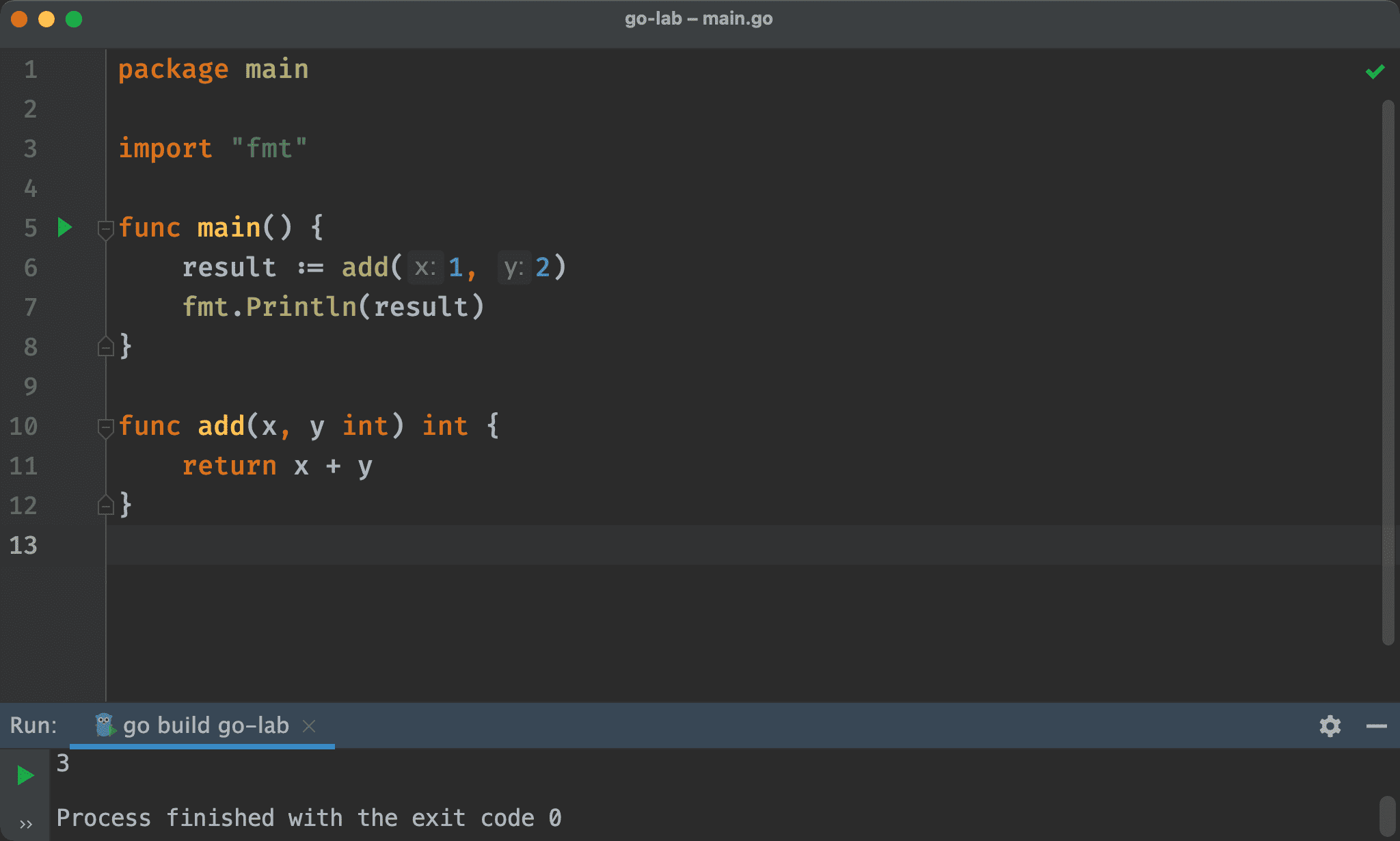We can use func keyword to define a function.
Version
Golang 1.17.7
Function
main.go
package main
import "fmt"
func main() {
result := add(1, 2)
fmt.Println(result)
}
func add(x, y int) int {
return x + y
}
Line 1
package main
Declare main package for the executable program.
Line 3
import "fmt"
Import fmt package for using fmt.Println().
Line 5
func main() {
result := add(1, 2)
fmt.Println(result)
}
main() is a special function and it’s the entry point of the executable program.
- Go is not an OOP-only language. We can define function directly
func: define a function withfunckeyword:=: define a variable without type. The type is inferred automatically by Type Inferencefmt.Println: print out the result
Line 10
func add(x, y int) int {
return x + y
}
add() is a user-defined function.
x, y int: parameterxandyare all typeint. We can ignore to declare typeinton the first parameterfunc add() int: declare return typeintof the function
We don’t have to define
add()before usingmain()

Conclusion
funckeyword is so concise to define a function- We don’t have to use
:to declare parameter type and function return type - We can use
:=to define a local variable in the function instead ofvar